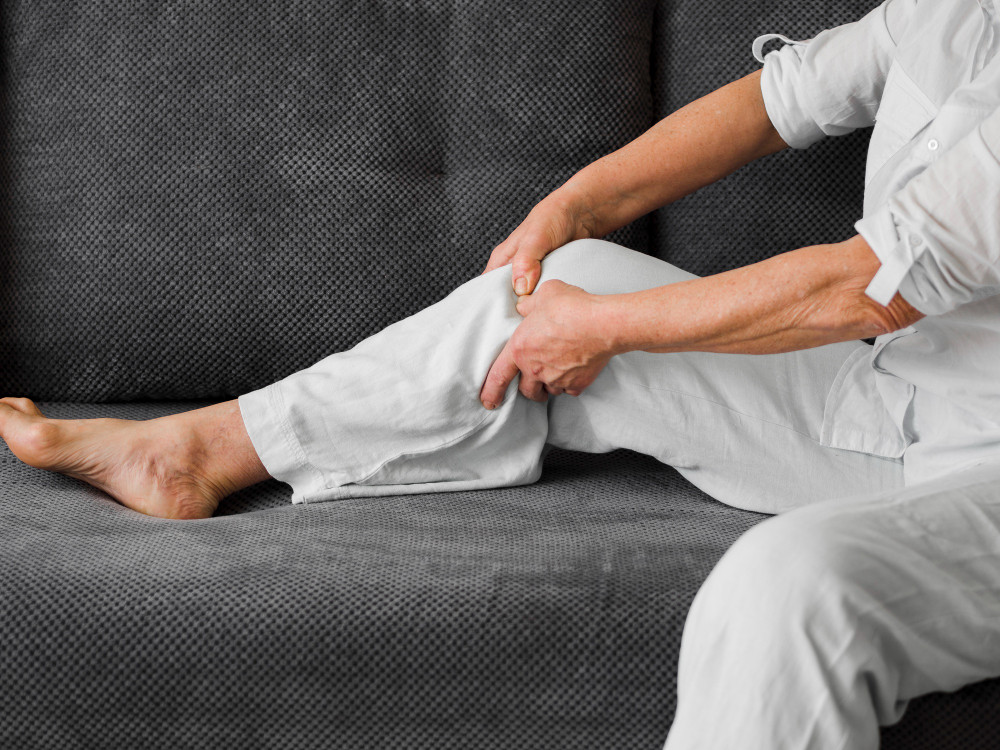Gout causes joint pain due to the accumulation of uric acid in the joints. This pain is often triggered by consuming purine-rich foods or drinking alcoholic beverages, but other factors, such as stress, can also contribute to gout pain.
The impact of stress and anxiety on gout pain
According to Healthline, stress does not directly cause gout, but it can increase uric acid levels in the blood. A study found that when a person is stressed, the body increases uric acid levels to manage oxidative stress. When uric acid levels remain high, the risk of gout pain increases.
Stress can also lead to an unhealthy lifestyle, such as drinking less water, exercising less frequently, and eating unhealthy foods. Additionally, stress may trigger unhealthy habits like consuming alcoholic beverages, which raises uric acid levels, indirectly increasing the risk of gout pain.
The recurrence of gout pain can, in turn, elevate a person's stress level. A study found that chronic joint inflammation caused by gout is linked to an increased risk of depression. Inflammatory cytokines, proteins secreted during inflammation, can affect neurotransmitter function, impacting the brain's ability to regulate mood and potentially leading to depression symptoms.
How to manage stress
Stress, if not managed properly, can lead to depression and other health issues. Here are some ways to manage stress effectively:
- Lead an active lifestyle: Regular exercise and other physical activities can help relieve stress. Engage in a sport you enjoy for 150 minutes per week to achieve a fit body, a more focused mind, and a better mood
- Eat a healthy diet: Increase your intake of vegetables, fruits, and whole grains for a more balanced diet
- Avoid unhealthy habits: Stop smoking, drinking alcohol, and staying up late, as these can increase stress and harm your health
- Meditation and relaxation: Deep breathing exercises and other relaxation techniques can help you cope with stress. Practice meditation, yoga, and mindfulness exercises
- Engaging in hobbies: Activities like painting, watching movies, knitting, and traveling to new places can help reduce stress
How to prevent gout pain
If you have a family history of gout, you are more likely to develop gout pain. Here are some ways to prevent gout pain by adopting a healthier lifestyle:
- Change your diet: Limit your consumption of purine-rich foods like seafood, red meat, and innards. Increase your intake of low-purine foods like fruits, vegetables, and eggs
- Quit smoking and consuming alcohol: Alcoholic beverages are high in purines, which can cause gout pain to return
- Lose weight: Excess weight can lead to an increase in uric acid. If you are overweight, start a weight-loss program that includes adjusting your diet and exercising regularly
- Drink more water: Drinking plenty of water helps the body remove excess uric acid and prevents the formation of uric acid crystals
- Take medication: If you have a history of gout pain, take medications according to your doctor’s recommendations to help prevent gout
Stress does not directly cause gout pain, but it can serve as a trigger for gout recurrence. If you are experiencing stress or recurrent gout, you should consult a doctor.
If you need medical advice or consultation, you can either visit a doctor or make use of the consultation features that are available in the Ai Care application by downloading the Ai Care application from the App Store or Play Store.
Looking for more information about other diseases? Click here!
- Sean Edbert Lim, MBBS
Pedersen, T. (2024). Can Stress and Anxiety Cause Gout?. Available from: https://www.healthline.com/health/can-stress-and-anxiety-cause-gout
Mulcahy, L. The Link Between Gout and Depression: What to Know. Available from: https://www.webmd.com/arthritis/news/20230720/the-link-between-gout-and-depression-what-to-know
Poliz, M. (2024). How to Prevent Gout. Available from: https://www.verywellhealth.com/how-to-prevent-gout-5112846
Mayo Clinic. Stress relievers: Tips to tame stress. Available from: https://www.mayoclinic.org/healthy-lifestyle/stress-management/in-depth/stress-relievers/art-20047257
Jennings, K. (2023). 16 Simple Ways to Relieve Stress. Available from: https://www.healthline.com/nutrition/16-ways-relieve-stress-anxiety










